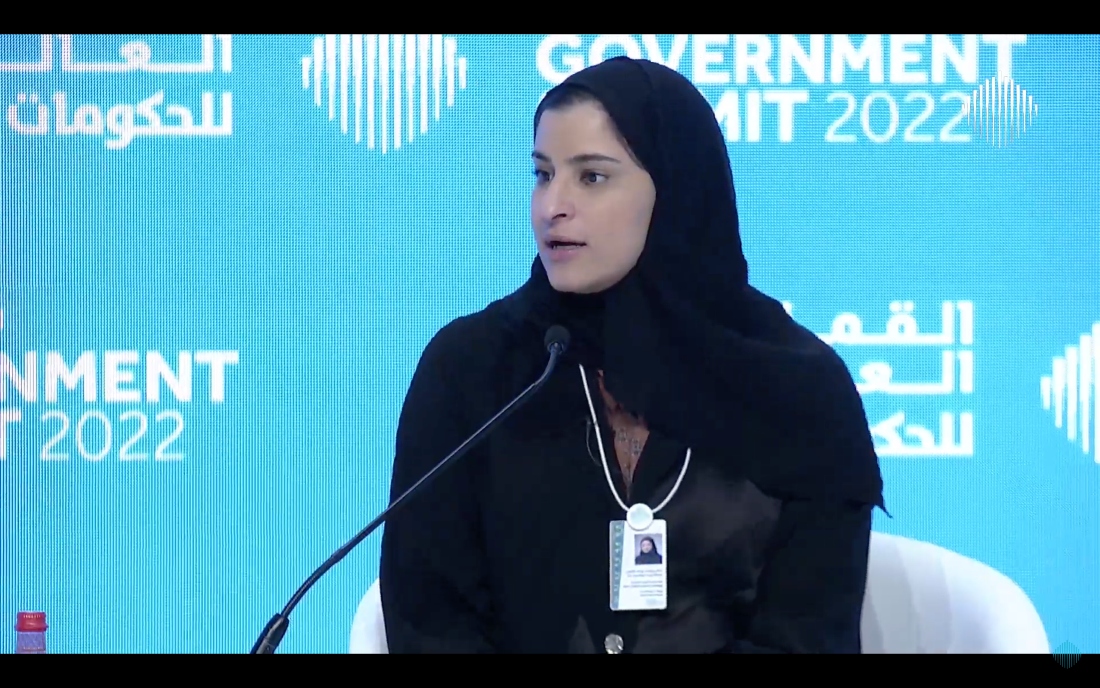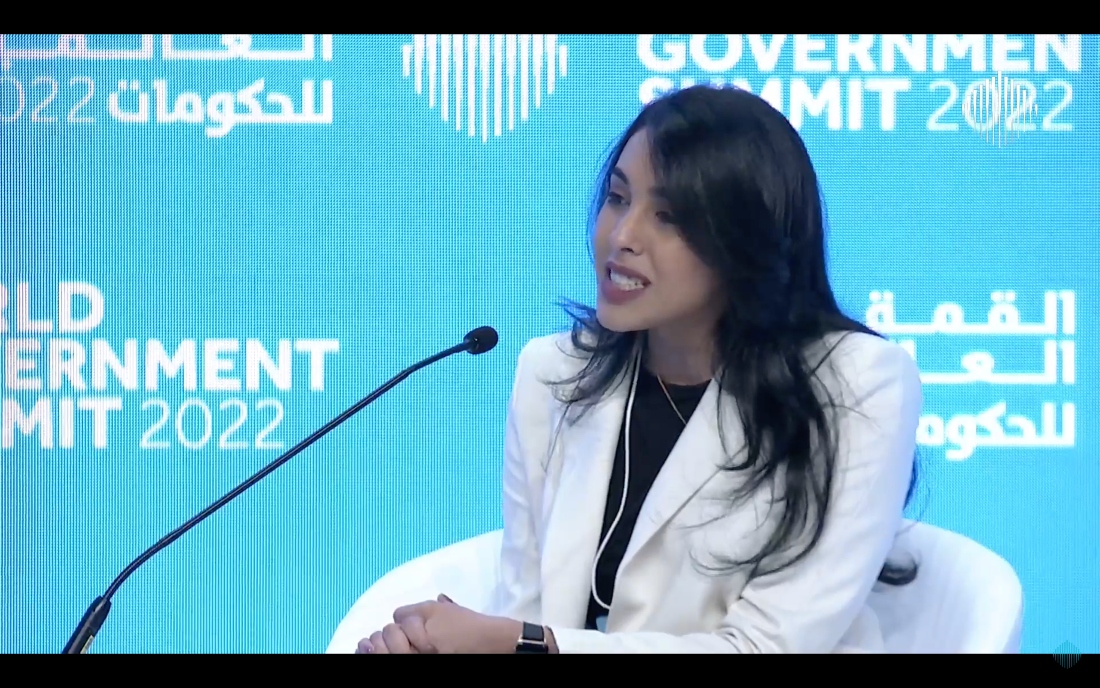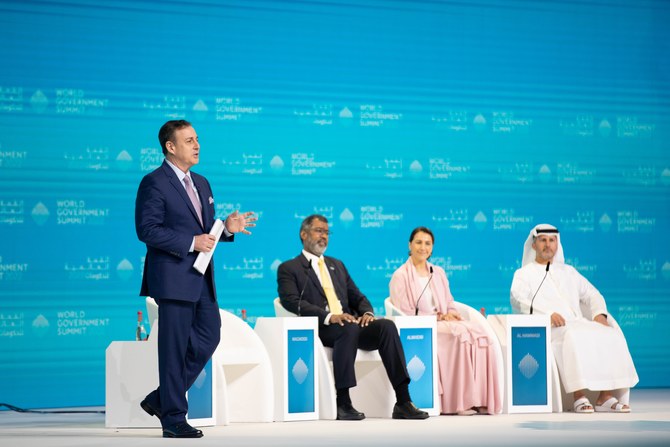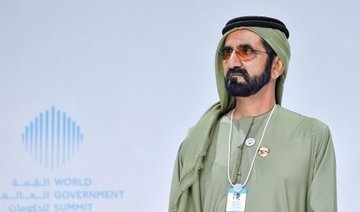DUBAI: The empowerment of women was a recurring theme of this year’s World Government Summit at Expo 2020 Dubai, with representatives from governments and the world of business sharing their recipes for success on a slew of expert panels.
Among those speaking on day two of the summit was Sarah Al-Amiri, the UAE’s minister of state for advanced technology, chair of the UAE Space Agency and Council of Scientists, and deputy project manager of the Emirates Mars Mission.
Speaking in a session titled “Empowering societies with future skills,” Al-Amiri described her own journey from computer engineering to joining the government sector, a route that merged perfectly with the UAE’s efforts to diversify its economy and boost female workforce participation.
“We need to gain knowledge and know-how, we need to identify the direction and competitiveness,” said Al-Amiri. “By developing new sectors in the economy, we are also developing capabilities and the right programs.”

Sarah Al-Amiri, the UAE’s minister of state for advanced technology, chair of the UAE Space Agency and Council of Scientists, and deputy project manager of the Emirates Mars Mission. (Supplied)
Speaking on the same panel was Asrar Damdam, the Saudi CEO and founder of Uvera, an early-stage startup that aims to revolutionize food preservation using new technologies, such as the Internet of Things and artificial intelligence.
Damdam said she felt lucky to have come of age in the era of women’s empowerment in Saudi Arabia.
“The empowerment initiative was first started by the late King Abdullah, it continues with our current King Salman, and will thrive with the Crown Prince Mohammad bin Salman,” she said. “I am lucky to be in my 20s and living in this era.”
In particular, Damdam says she was fortunate to benefit from a world-class education thanks to a state mentoring program and a scholarship.
“In 2009, in my high school year, I received intensive mentorship in science and technology by a state-funded program, which helped shape my future decisions,” she said.

Asrar Damdam, the Saudi CEO and founder of Uvera. (Supplied)
With funding from the Misk Foundation, established by Crown Prince Mohammed bin Salman to drive Saudi youth empowerment, Damdam was able to travel to Silicon Valley, California, to pursue her master’s degree, specializing in silicon electronics for heart devices.
Upon her return to the Kingdom, she decided to change career path and switched to food sustainability. In 2019, Damdam founded Uvera, a Silicon Valley-backed biotech company that focuses on prolonging the shelf life of food without using chemicals.
Both Damdam and Al-Amiri said leadership and assistance from civil society were essential to their success.
“Empowerment is not just a word,” said Al-Amiri.
Established almost a decade ago, the World Government Summit in the UAE helps to identify opportunities and set the agenda for future governments. It attracts high-level government officials, senior representatives of international organizations, private sector leaders, thinkers, opinion makers, futurists and experts.
INNUMBERS
* 4,000-plus attendees.
* 110-Plus speakers.
* 110-Plus sessions and workshops.
* 30-Plus international organizations.
Speakers typically discuss the most pressing global challenges, suggesting ways to improve government performance and prepare for, as well as deal with, sudden changes. This year, the summit has created 15 global forums to tackle threats emerging from volatile financial markets and new virtual worlds.
“The launch of these global forums is part of the goal to identify and highlight the most important global trends in vital sectors, and to inform policies, strategies, and plans that advance the preparedness and adaptability of governments for the next stage of development,” Mohammad bin Abdullah Al-Gergawi, UAE minister of cabinet affairs and chairman of the World Government Summit Foundation, said on Monday.


























